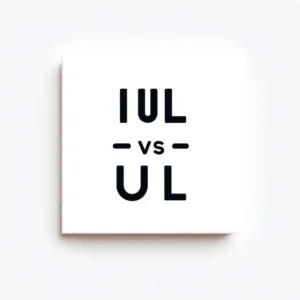We will compare the definitions and merits of indexed universal life insurance vs universal life insurance.
Specifically, we’ll delve into:
- universal life insurance meaning
- indexed universal life insurance meaning
- universal life insurance pros and cons
- pros and cons indexed universal life
If you are looking to invest as an expat or high-net-worth individual, which is what I specialize in, you can email me (advice@adamfayed.com) or WhatsApp (+44-7393-450-837).
This includes if you are looking for a second opinion or alternative investments.
Some of the facts might change from the time of writing, and nothing written here is formal advice.
For updated guidance, please contact me.
Universal life insurance meaning
A UL policy enables people to adjust their death benefits and premiums based on their budget.
Over time, the policy’s cash value portion grows and earns interest depending on either an established interest rate or the insurance provider‘s portfolio.
It is possible to access this cash value by withdrawals or loans.
Indexed universal life insurance meaning
IUL ties its cash value growth to a stock market index.
If premiums are paid, both UL and IUL offer lifetime insurance coverage.
Both policies gradually build up cash value, and policyholders are able to modify the cost of their premiums within set bounds.
Difference between universal life insurance and indexed universal life insurance
With a guaranteed minimum return and maximum gain caps, an IUL’s investment portion increases in response to the performance of a particular stock market index.
Its relationship to market indices makes it more intricate.
Interest is normally paid on a UL’s cash value according to the insurer’s set interest rates, which may be less than an IUL’s possible returns.
Hence, cash value growth is simpler as it relies mostly on interest rates.
These variations impact complexity, risk exposure, and possible earnings, making each product appropriate for various risk tolerances and financial targets.
Pained by financial indecision?

Adam is an internationally recognised author on financial matters with over 830million answer views on Quora, a widely sold book on Amazon, and a contributor on Forbes.



